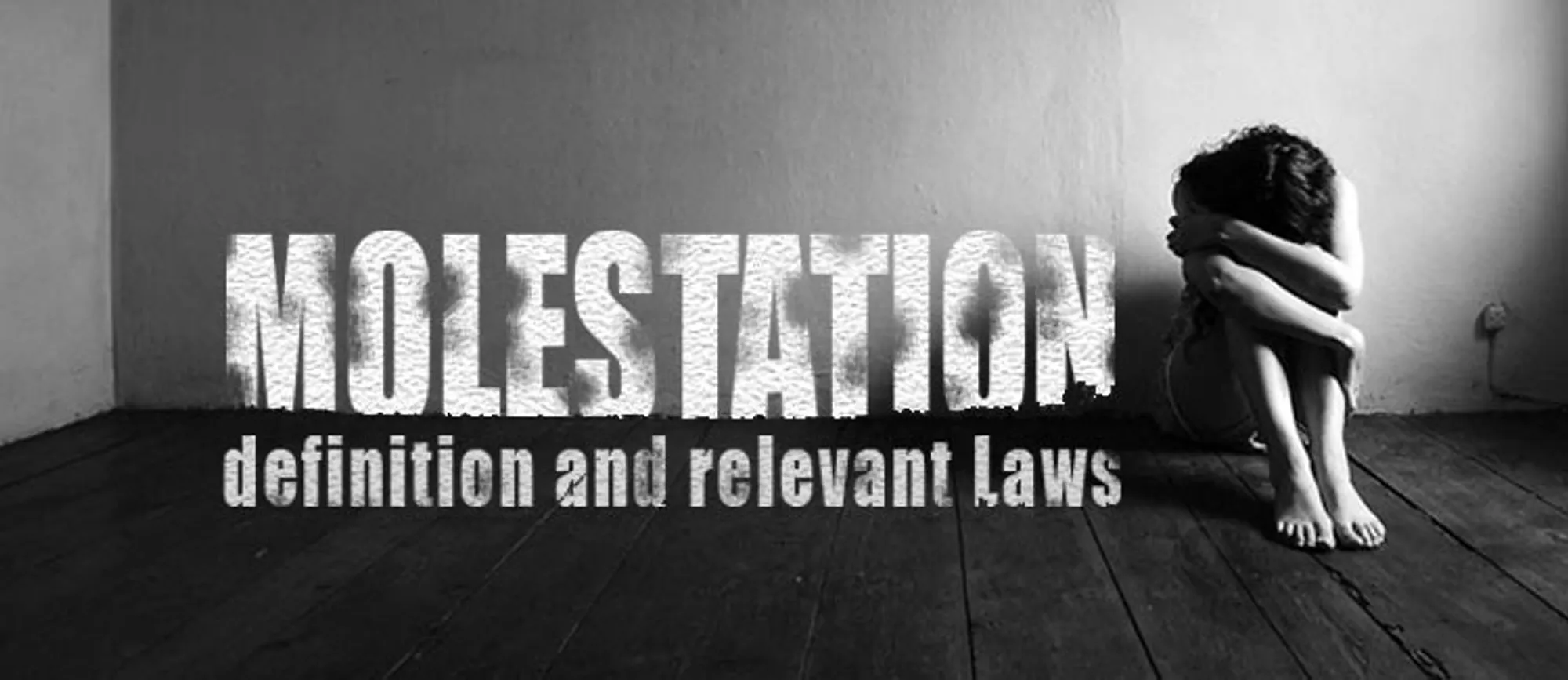When a Bollywood actress of the stature of Vidya Balan gives her opinion on Molestation, and it makes headlines in Newspaper sections, it catches attention –and thankfully manages to raise pertinent questions too. Not that we need celebrities to promote awareness on social issues all the time, but it helps if a prominent voice brings crucial aspects to the fore. Vidya’s concern is that ‘molestation’ as a term is not clearly defined and in fact loosely interpreted.
While we can have immense discussions on whether the term is defined clearly or not, the fact is that the menace itself has been a source of concern in the country for ages. In fact, Molestation is an offence that often gets ignored – not just in India but other parts of the world too. What exactly does it mean and how is it addressed in our country?
The term Molestation is used for situations when a woman’s “modesty” is at risk. The word “modesty” is not something that’s defined legally as such in the Indian Penal Code. One can only rely on Dictionary meanings of the term. The Shorter Oxford English Dictionary defines the word “modest” about a woman as follows: “Decorous in manner and conduct; not forward or lewd; shamefast.”
“Modesty” is defined as the quality of being modest, and in relation to a woman, dictionaries define it as “womanly propriety of behaviour; scrupulous chastity of thought, speech and conduct.”
“Modesty,” therefore, has some relation to the sense of propriety of behaviour in relation to the woman against whom the offence is said to have been committed. It refers to cases where an individual insults the modesty of a woman by way of lewd acts or using words, gesture, or acts that are intended to insult the modesty and dignity of a woman.
Let’s take the example of a city like the national capital of the country, Delhi. It has been reported that 5,192 cases of molestation and 1,444 cases of eve-teasing (the term for sexually-coloured remarks, street harassment, etc.) were reported till December 15, 2015, compared to 4,182 molestations and 1,282 eve-teasing cases in the corresponding period the previous year.
Analysis has suggested that 60 to 65 per cent of women victims are between 15-30 years old. Almost 39 per cent of molestation cases have been committed by friends and family members’ friends, something which cannot be prevented directly by the police. It would help if women and society in general becomes more aware of the issues involved. Collective efforts from the society can help solve this menace.
In various Sections of the Indian Law, the term molestation and its punishment get mentioned in different ways. In 2013, law amendments were made with respect to rape and molestation and their definitions too were changed to accommodate the various instances of outrage that take place against women. Even cyber-stalking is now treated as ‘outraging modesty’. Smaller acts of obscenity have now been brought into the ambit of molestation and women are being heard more judiciously.
The following is the approach under various laws:
- Under Section 294 of The IPC, the indecent act or singing, reciting, uttering of the obscene song done by the offender that causes annoyance of others in public and cause mental harassment will be considered molestation and is punishable.
Punishment:
- Imprisonment for a period that may extend to three months or
- Fine or
- Both imprisonment and fine.
- Under Section 509 of IPC, when the offender tries to insult the modesty of any woman by saying words, making gestures or sounds or displaying any object or intruding her privacy and his intention is that the word uttered or sound made is heard, object displayed or gesture made is seen is punishable.
Punishment:
- Imprisonment for a period that may extend to one year or
- Fine or
- Both imprisonment and fine.
- Under Section 354 of IPC, whoever uses criminal force or assaults any woman with the intention to outrage her modesty or knows his actions will outrage the lady’s modesty is punishable.
Punishment:
- Imprisonment up to two years or
- Fine or
- Both imprisonment and fine.
- Under Section 323 of IPC, whoever voluntarily causes hurt to the other person without any provocation as defined in Section 334 is punishable.
Punishment:
- Imprisonment up to one year or
- Fine up to Rs.1000 or
- Both imprisonment and fine.

